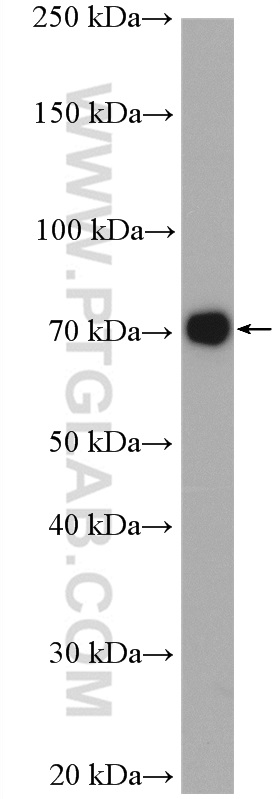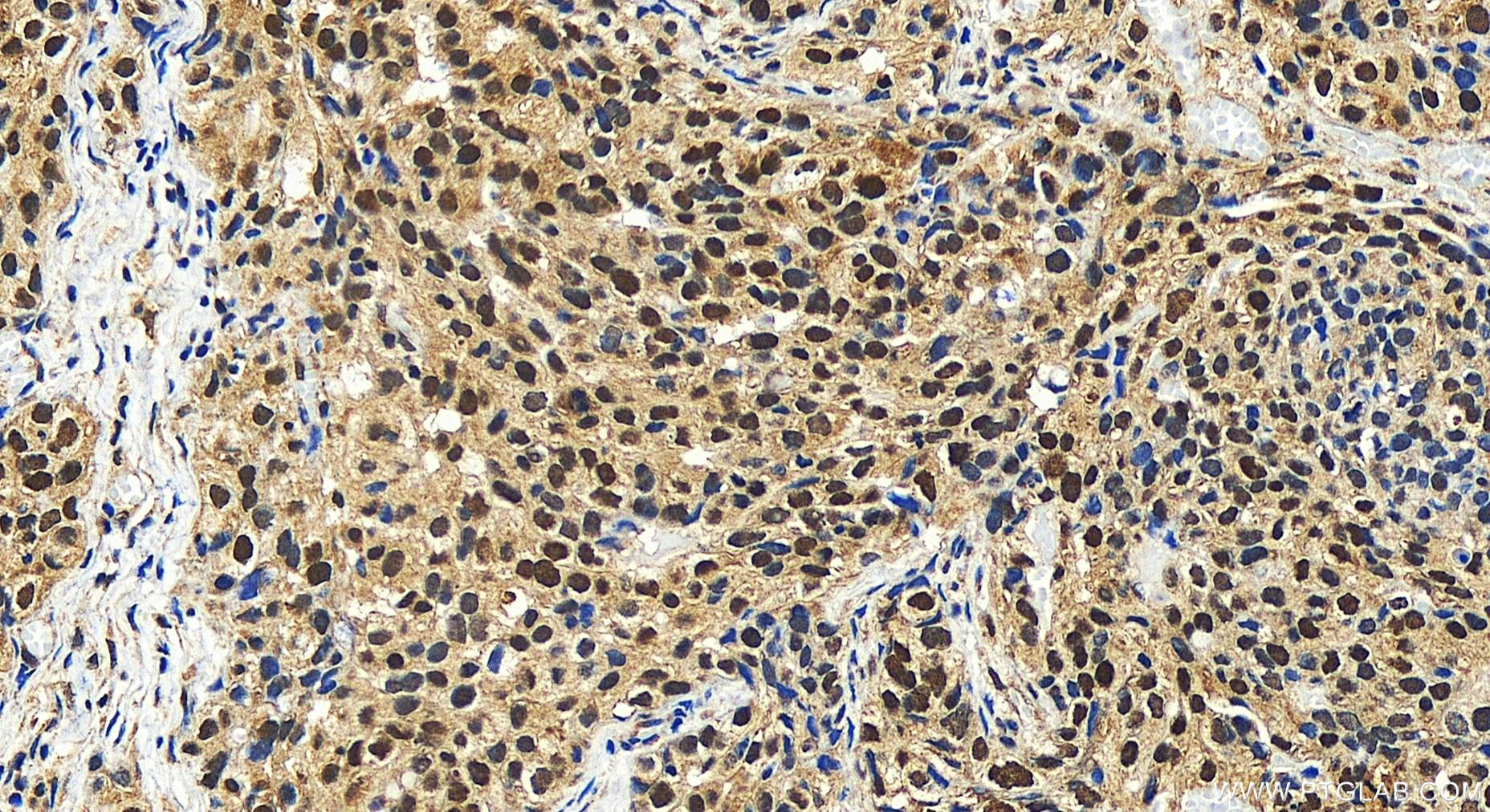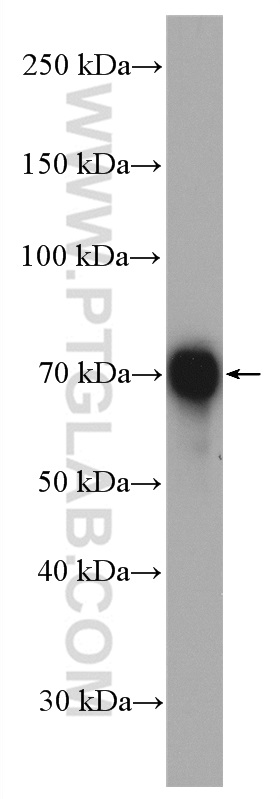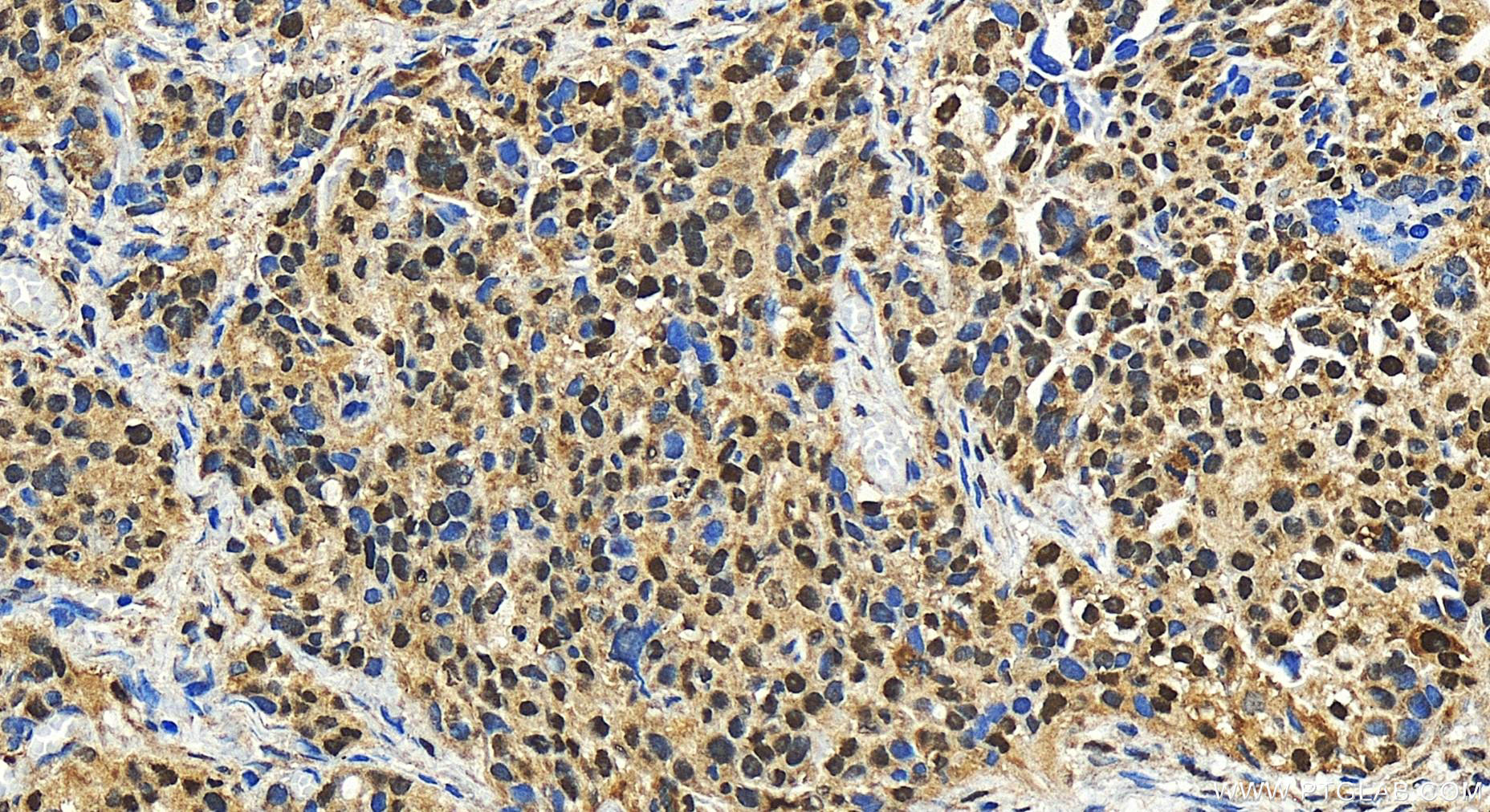验证数据展示
经过测试的应用
| Positive WB detected in | K-562 cells, HL-60 cells |
| Positive IHC detected in | human ovary cancer tissue Note: suggested antigen retrieval with TE buffer pH 9.0; (*) Alternatively, antigen retrieval may be performed with citrate buffer pH 6.0 |
推荐稀释比
| 应用 | 推荐稀释比 |
|---|---|
| Western Blot (WB) | WB : 1:500-1:3000 |
| Immunohistochemistry (IHC) | IHC : 1:250-1:1000 |
| It is recommended that this reagent should be titrated in each testing system to obtain optimal results. | |
| Sample-dependent, Check data in validation data gallery. | |
产品信息
27764-1-AP targets NAF1 in WB, IHC, ELISA applications and shows reactivity with human samples.
| 经测试应用 | WB, IHC, ELISA Application Description |
| 经测试反应性 | human |
| 免疫原 | NAF1 fusion protein Ag26787 种属同源性预测 |
| 宿主/亚型 | Rabbit / IgG |
| 抗体类别 | Polyclonal |
| 产品类型 | Antibody |
| 全称 | nuclear assembly factor 1 homolog (S. cerevisiae) |
| 别名 | hNAF1, H/ACA ribonucleoprotein complex non-core subunit NAF1 |
| 计算分子量 | 54 kDa |
| 观测分子量 | 70 kDa |
| GenBank蛋白编号 | BC008207 |
| 基因名称 | NAF1 |
| Gene ID (NCBI) | 92345 |
| RRID | AB_2880965 |
| 偶联类型 | Unconjugated |
| 形式 | Liquid |
| 纯化方式 | Antigen affinity purification |
| UNIPROT ID | Q96HR8 |
| 储存缓冲液 | PBS with 0.02% sodium azide and 50% glycerol , pH 7.3 |
| 储存条件 | Store at -20°C. Stable for one year after shipment. Aliquoting is unnecessary for -20oC storage. |
背景介绍
NAF1, an H/ACA box RNP assembly chaperone, is a factor necessary for H/ACA snoRNP maturation and ribosome biosynthesis in mammalian cells. In addition, among these RNA biogenesis factors, NAF1 may be unique in that it is required at full dosage for telomerase and telomere maintenance in the process of pulmonary fibrosis-emphysema. (PMID: 30936423)
实验方案
| Product Specific Protocols | |
|---|---|
| WB protocol for NAF1 antibody 27764-1-AP | Download protocol |
| IHC protocol for NAF1 antibody 27764-1-AP | Download protocol |
| Standard Protocols | |
|---|---|
| Click here to view our Standard Protocols |




